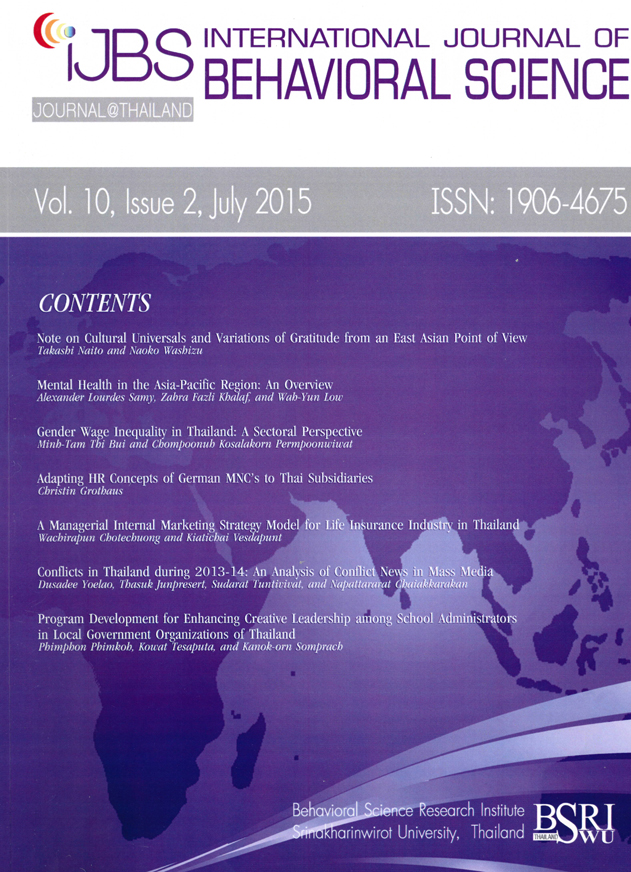Note on Cultural Universals and Variations of Gratitude from an East Asian Point of View
Main Article Content
Abstract
The current paper is a brief selective review of cross-cultural studies on gratitude and related feelings, especially indebtedness. The concept of gratitude has been investigated under the universality hypotheses, which postulates the following: (a) Gratitude is affected by its antecedent variables, including gains of the beneficiary, cost to the benefactor, and the altruistic motivation of the benefactor; (b) Gratitude includes positive feeling, such as attachment and respect for the benefactor, and the wish to repay the benefactor; (c) Gratitude leads to behaviors such as expressions of the gratitude directed at the benefactor, requitals, repayments, generalized repayments and prosocial behaviors directed at others in general; and (d) Experience of gratitude is related to positive attributes, such as well-being. The review of studies on gratitude from cultural points of view suggested that further studies on the following topics should be conducted in the future: (a) Influences of cultural values on gratitude behaviors, including cultural differences in the expression of gratitude; (b) Cultural differences in conceptions of gratitude; and (c) Cultural differences in the association and concurrency between gratitude and other feelings such as indebtedness.
Keywords: gratitude, indebtedness, culture, East Asia

